- Home
- Jack London
John Barleycorn Page 14
John Barleycorn Read online
Page 14
Furthermore, at that time in my life I did not know what a cocktail was. I remember, when my first book was published, several Alaskans, who were members of the Bohemian Club, entertained me one evening at the club in San Francisco . We sat in most wonderful leather chairs, and drinks were ordered. Never had I heard such an ordering of liqueurs and of highballs of particular brands of Scotch. I didn’t know what a liqueur or a highball was, and I didn’t know that “Scotch” meant whisky. I knew only poor men’s drinks, the drinks of the frontier and of sailor-towncheap beer and cheaper whisky that was just called whisky and nothing else. I was embarrassed to make a choice, and the steward nearly collapsed when I ordered claret as an after-dinner drink.
CHAPTER XXVII
As I succeeded with my writing, my standard of living rose and my horizon broadened. I confined myself to writing and typing a thousand words a day, including Sundays and holidays; and I still studied hard, but not so hard as formerly. I allowed myself five and one-half hours of actual sleep. I added this half-hour because I was compelled. Financial success permitted me more time for exercise. I rode my wheel more, chiefly because it was permanently out of pawn; and I boxed and fenced, walked on my hands, jumped high and broad, put the shot and tossed the caber, and went swimming. And I learned that more sleep is required for physical exercise than for mental exercise. There were tired nights, bodily, when I slept six hours; and on occasion of very severe exercise I actually slept seven hours. But such sleep orgies were not frequent. There was so much to learn, so much to be done, that I felt wicked when I slept seven hours. And I blessed the man who invented alarm clocks.
And still no desire to drink. I possessed too many fine faiths, was living at too keen a pitch. I was a socialist, intent on saving the world, and alcohol could not give me the fervours that were mine from my ideas and ideals. My voice, on account of my successful writing, had added weight, or so I thought. At any rate, my reputation as a writer drew me audiences that my reputation as a speaker never could have drawn. I was invited before clubs and organisations of all sorts to deliver my message. I fought the good fight, and went on studying and writing, and was very busy.
Up to this time I had had a very restricted circle of friends. But now I began to go about. I was invited out, especially to dinner, and I made many friends and acquaintances whose economic lives were easier than mine had been. And many of them drank. In their own houses they drank and offered me drink. They were not drunkards any of them. They just drank temperately, and I drank temperately with them as an act of comradeship and accepted hospitality. I did not care for it, neither wanted it nor did not want it, and so small was the impression made by it that I do not remember my first cocktail nor my first Scotch highball.
Well, I had a house. When one is asked into other houses, he naturally asks others into his house. Behold the rising standard of living. Having been given drink in other houses, I could expect nothing else of myself than to give drink in my own house. So I laid in a supply of beer and whisky and table claret. Never since that has my house not been well supplied.
And still, through all this period, I did not care in the slightest for John Barleycorn. I drank when others drank, and with them, as a social act. And I had so little choice in the matter that I drank whatever they drank. If they elected whisky, then whisky it was for me. If they drank root beer or sarsaparilla, I drank root beer or sarsaparilla with them. And when there were no friends in the house, why, I didn’t drink anything. Whisky decanters were always in the room where I wrote, and for months and years I never knew what it was, when by myself, to take a drink.
When out at dinner I noticed the kindly, genial glow of the preliminary cocktail. It seemed a very fitting and gracious thing. Yet so little did I stand in need of it, with my own high intensity and vitality, that I never thought it worth while to have a cocktail before my own meal when I ate alone.
On the other hand, I well remember a very brilliant man, somewhat older than I, who occasionally visited me. He liked whisky, and I recall sitting whole afternoons in my den, drinking steadily with him, drink for drink, until he was mildly lighted up and I was slightly aware that I had drunk some whisky. Now why did I do this? I don’t know, save that the old schooling held, the training of the old days and nights glass in hand with men, the drinking ways of drink and drinkers.
Besides, I no longer feared John Barleycorn. Mine was that most dangerous stage when a man believes himself John Barleycorn’s master. I had proved it to my satisfaction in the long years of work and study. I could drink when I wanted, refrain when I wanted, drink without getting drunk, and to cap everything I was thoroughly conscious that I had no liking for the stuff. During this period I drank precisely for the same reason I had drunk with Scotty and the harpooner and with the oyster piratesbecause it was an act that men performed with whom I wanted to behave as a man. These brilliant ones, these adventurers of the mind, drank. Very well. There was no reason I should not drink with themI who knew so confidently that I had nothing to fear from John Barleycorn.
And the foregoing was my attitude of mind for years. Occasionally I got well jingled, but such occasions were rare. It interfered with my work, and I permitted nothing to interfere with my work. I remember, when spending several months in the East End of London, during which time I wrote a book and adventured much amongst the worst of the slum classes, that I got drunk several times and was mightily wroth with myself because it interfered with my writing. Yet these very times were because I was out on the adventure-path where John Barleycorn is always to be found.
Then, too, with the certitude of long training and unholy intimacy, there were occasions when I engaged in drinking bouts with men. Of course, this was on the adventure-path in various parts of the world, and it was a matter of pride. It is a queer man-pride that leads one to drink with men in order to show as strong a head as they. But this queer man-pride is no theory. It is a fact.
For instance, a wild band of young revolutionists invited me as the guest of honour to a beer bust. It is the only technical beer bust I ever attended. I did not know the true inwardness of the affair when I accepted. I imagined that the talk would be wild and high, that some of them might drink more than they ought, and that I would drink discreetly. But it seemed these beer busts were a diversion of these high-spirited young fellows whereby they whiled away the tedium of existence by making fools of their betters. As I learned afterward, they had got their previous guest of honour, a brilliant young radical, unskilled in drinking, quite pipped.
When I found myself with them, and the situation dawned on me, up rose my queer man-pride. I’d show them, the young rascals. I’d show them who was husky and chesty, who had the vitality and the constitution, the stomach and the head, who could make most of a swine of himself and show it least. These unlicked cubs who thought they could out-drink ME!
You see, it was an endurance test, and no man likes to give another best. Faugh! it was steam beer. I had learned more expensive brews. Not for years had I drunk steam beer; but when I had, I had drunk with men, and I guessed I could show these youngsters some ability in beer-guzzling. And the drinking began, and I had to drink with the best of them. Some of them might lag, but the guest of honour was not permitted to lag.
And all my austere nights of midnight oil, all the books I had read, all the wisdom I had gathered, went glimmering before the ape and tiger in me that crawled up from the abysm of my heredity, atavistic, competitive and brutal, lustful with strength and desire to outswine the swine.
And when the session broke up I was still on my feet, and I walked, erect, unswayingwhich was more than can be said of some of my hosts. I recall one of them in indignant tears on the street corner, weeping as he pointed out my sober condition. Little he dreamed the iron clutch, born of old training, with which I held to my consciousness in my swimming brain, kept control of my muscles and my qualms, kept my voice unbroken and easy and my thoughts consecutive and logical. Yes, and mixed up with it all I
was privily a-grin. They hadn’t made a fool of me in that drinking bout. And I was proud of myself for the achievement. Darn it, I am still proud, so strangely is man compounded.
But I didn’t write my thousand words next morning. I was sick, poisoned. It was a day of wretchedness. In the afternoon I had to give a public speech. I gave it, and I am confident it was as bad as I felt. Some of my hosts were there in the front rows to mark any signs on me of the night before. I don’t know what signs they marked, but I marked signs on them and took consolation in the knowledge that they were just as sick as I.
Never again, I swore. And I have never been inveigled into another beer bust. For that matter, that was my last drinking bout of any sort. Oh, I have drunk ever since, but with more wisdom, more discretion, and never in a competitive spirit. It is thus that the seasoned drinker grows seasoned.
To show that at this period in my life drinking was wholly a matter of companionship, I remember crossing the Atlantic in the old Teutonic. It chanced, at the start, that I chummed with an English cable operator and a younger member of a Spanish shipping firm. Now the only thing they drank was “horse’s neck”a long, soft, cool drink with an apple peel or an orange peel floating in it. And for that whole voyage I drank horse’s, necks with my two companions. On the other hand, had they drunk whisky, I should have drunk whisky with them. From this it must not be concluded that I was merely weak. I didn’t care. I had no morality in the matter. I was strong with youth, and unafraid, and alcohol was an utterly negligible question so far as I was concerned.
CHAPTER XXVIII
Not yet was I ready to tuck my arm in John Barleycorn’s. The older I got, the greater my success, the more money I earned, the wider was the command of the world that became mine and the more prominently did John Barleycorn bulk in my life. And still I maintained no more than a nodding acquaintance with him. I drank for the sake of sociability, and when alone I did not drink. Sometimes I got jingled, but I considered such jingles the mild price I paid for sociability.
To show how unripe I was for John Barleycorn, when, at this time, I descended into my slough of despond, I never dreamed of turning to John Barleycorn for a helping hand. I had life troubles and heart troubles which are neither here nor there in this narrative. But, combined with them, were intellectual troubles which are indeed germane.
Mine was no uncommon experience. I had read too much positive science and lived too much positive life. In the eagerness of youth I had made the ancient mistake of pursuing Truth too relentlessly. I had torn her veils from her, and the sight was too terrible for me to stand. In brief, I lost my fine faiths in pretty well everything except humanity, and the humanity I retained faith in was a very stark humanity indeed.
This long sickness of pessimism is too well known to most of us to be detailed here. Let it suffice to state that I had it very bad. I meditated suicide coolly, as a Greek philosopher might. My regret was that there were too many dependent directly upon me for food and shelter for me to quit living. But that was sheer morality. What really saved me was the one remaining illusionthe PEOPLE.
The things I had fought for and burned my midnight oil for had failed me. SuccessI despised it. Recognitionit was dead ashes. Society, men and women above the ruck and the muck of the water-front and the forecastleI was appalled by their unlovely mental mediocrity. Love of womanit was like all the rest. MoneyI could sleep in only one bed at a time, and of what worth was an income of a hundred porterhouses a day when I could eat only one? Art, culturein the face of the iron facts of biology such things were ridiculous, the exponents of such things only the more ridiculous.
From the foregoing it can be seen how very sick I was. I was born a fighter. The things I had fought for had proved not worth the fight. Remained the PEOPLE. My fight was finished, yet something was left still to fight forthe PEOPLE.
But while I was discovering this one last tie to bind me to life, in my extremity, in the depths of despond, walking in the valley of the shadow, my ears were deaf to John Barleycorn. Never the remotest whisper arose in my consciousness that John Barleycorn was the anodyne, that he could lie me along to live. One way only was uppermost in my thoughtmy revolver, the crashing eternal darkness of a bullet. There was plenty of whisky in the housefor my guests. I never touched it. I grew afraid of my revolverafraid during the period in which the radiant, flashing vision of the PEOPLE was forming in my mind and will. So obsessed was I with the desire to die that I feared I might commit the act in my sleep, and I was compelled to give my revolver away to others who were to lose it for me where my subconscious hand might not find it.
But the PEOPLE saved me. By the PEOPLE was I handcuffed to life. There was still one fight left in me, and here was the thing for which to fight. I threw all precaution to the winds, threw myself with fiercer zeal into the fight for socialism, laughed at the editors and publishers who warned me and who were the sources of my hundred porterhouses a day, and was brutally careless of whose feelings I hurt and of how savagely I hurt them. As the “well-balanced radicals” charged at the time, my efforts were so strenuous, so unsafe and unsane, so ultra-revolutionary, that I retarded the socialist development in the United States by five years. In passing, I wish to remark, at this late date, that it is my fond belief that I accelerated the socialist development in the United States by at least five minutes.
It was the PEOPLE, and no thanks to John Barleycorn, who pulled me through my long sickness. And when I was convalescent came the love of woman to complete the cure and lull my pessimism asleep for many a long day, until John Barleycorn again awoke it. But in the meantime, I pursued Truth less relentlessly, refraining from tearing her last veils aside even when I clutched them in my hand. I no longer cared to look upon Truth naked. I refused to permit myself to see a second time what I had once seen. And the memory of what I had that time seen I resolutely blotted from my mind.
And I was very happy. Life went well with me, I took delight in little things. The big things I declined to take too seriously. I still read the books, but not with the old eagerness. I still read the books to-day, but never again shall I read them with that old glory of youthful passion when I harked to the call from over and beyond that whispered me on to win to the mystery at the back of life and behind the stars.
The point of this chapter is that, in the long sickness that at some time comes to most of us, I came through without any appeal for aid to John Barleycorn. Love, socialism, the PEOPLEhealthful figments of man’s mindwere the things that cured and saved me. If ever a man was not a born alcoholic, I believe that I am that man. And yetwell, let the succeeding chapters tell their tale, for in them will be shown how I paid for my previous quarter of a century of contact with ever-accessible John Barleycorn.
CHAPTER XXIX
After my long sickness my drinking continued to be convivial. I drank when others drank and I was with them. But, imperceptibly, my need for alcohol took form and began to grow. It was not a body need. I boxed, swam, sailed, rode horses, lived in the open an arrantly healthful life, and passed life insurance examinations with flying colours. In its inception, now that I look back upon it, this need for alcohol was a mental need, a nerve need, a good-spirits need. How can I explain?
It was something like this. Physiologically, from the standpoint of palate and stomach, alcohol was, as it had always been, repulsive. It tasted no better than beer did when I was five, than bitter claret did when I was seven. When I was alone, writing or studying, I had no need for it. ButI was growing old, or wise, or both, or senile as an alternative. When I was in company I was less pleased, less excited, with the things said and done. Erstwhile worth-while fun and stunts seemed no longer worth while; and it was a torment to listen to the insipidities and stupidities of women, to the pompous, arrogant sayings of the little half-baked men. It is the penalty one pays for reading the books too much, or for being oneself a fool. In my case it does not matter which was my trouble. The trouble itself was the fact. The condition of the f
act was mine. For me the life, and light, and sparkle of human intercourse were dwindling.
I had climbed too high among the stars, or, maybe, I had slept too hard. Yet I was not hysterical nor in any way overwrought. My pulse was normal. My heart was an amazement of excellence to the insurance doctors. My lungs threw the said doctors into ecstasies. I wrote a thousand words every day. I was punctiliously exact in dealing with all the affairs of life that fell to my lot. I exercised in joy and gladness. I slept at night like a babe. But
Well, as soon as I got out in the company of others I was driven to melancholy and spiritual tears. I could neither laugh with nor at the solemn utterances of men I esteemed ponderous asses; nor could I laugh, nor engage in my old-time lightsome persiflage, with the silly superficial chatterings of women, who, underneath all their silliness and softness, were as primitive, direct, and deadly in their pursuit of biological destiny as the monkeys women were before they shed their furry coats and replaced them with the furs of other animals.
And I was not pessimistic. I swear I was not pessimistic. I was merely bored. I had seen the same show too often, listened too often to the same songs and the same jokes. I knew too much about the box office receipts. I knew the cogs of the machinery behind the scenes so well that the posing on the stage, and the laughter and the song, could not drown the creaking of the wheels behind.
It doesn’t pay to go behind the scenes and see the angel-voiced tenor beat his wife. Well, I’d been behind, and I was paying for it. Or else I was a fool. It is immaterial which was my situation. The situation is what counts, and the situation was that social intercourse for me was getting painful and difficult. On the other hand, it must be stated that on rare occasions, on very rare occasions, I did meet rare souls, or fools like me, with whom I could spend magnificent hours among the stars, or in the paradise of fools. I was married to a rare soul, or a fool, who never bored me and who was always a source of new and unending surprise and delight. But I could not spend all my hours solely in her company.

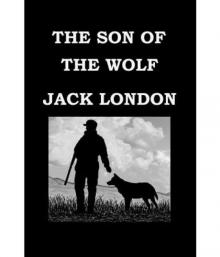 The Son of the Wolf
The Son of the Wolf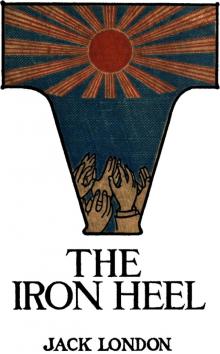 The Iron Heel
The Iron Heel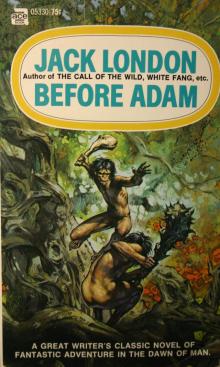 Before Adam
Before Adam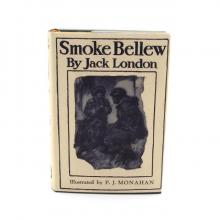 Smoke Bellew
Smoke Bellew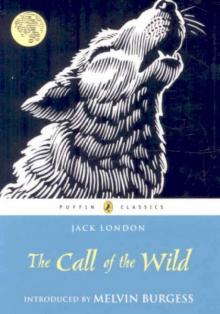 The Call of the Wild
The Call of the Wild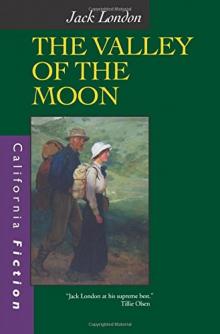 The Valley of the Moon Jack London
The Valley of the Moon Jack London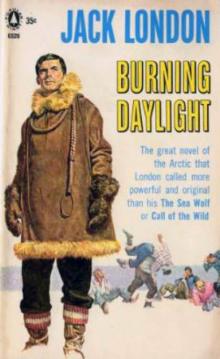 Burning Daylight
Burning Daylight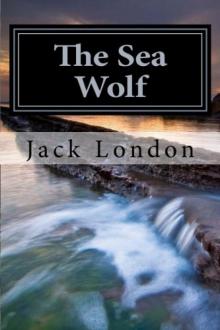 The Sea Wolf
The Sea Wolf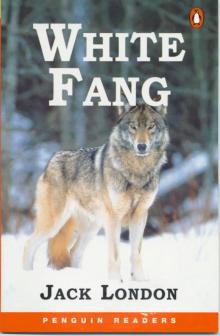 White Fang
White Fang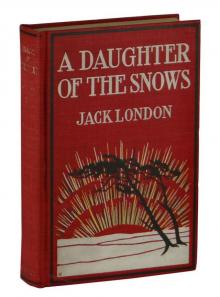 A Daughter of the Snows
A Daughter of the Snows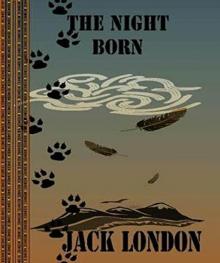 The Night-Born
The Night-Born A Son Of The Sun
A Son Of The Sun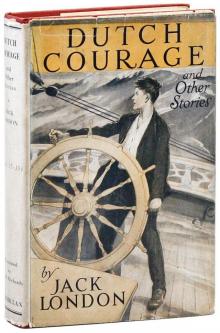 Dutch Courage and Other Stories
Dutch Courage and Other Stories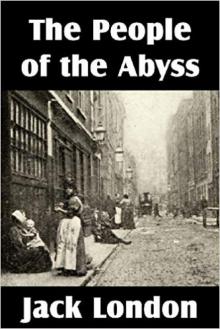 The People of the Abyss
The People of the Abyss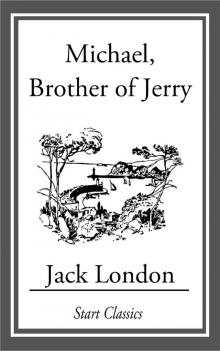 Michael, Brother of Jerry
Michael, Brother of Jerry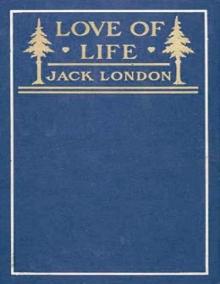 Love of Life, and Other Stories
Love of Life, and Other Stories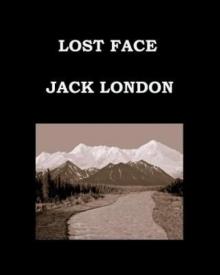 Lost Face
Lost Face The Road
The Road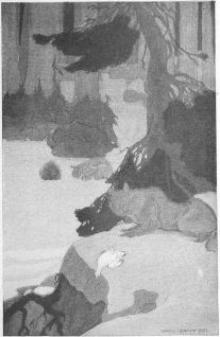 Love of Life
Love of Life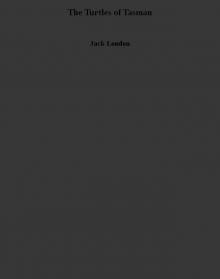 The Turtles of Tasman
The Turtles of Tasman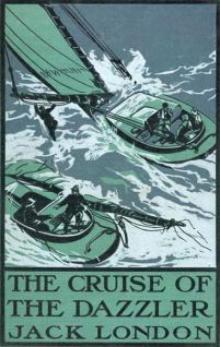 The Cruise of The Dazzler
The Cruise of The Dazzler The Heathen
The Heathen The Scab
The Scab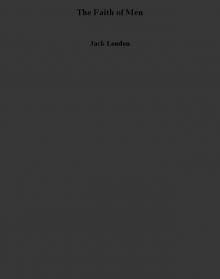 The Faith of Men
The Faith of Men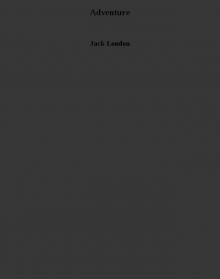 Adventure
Adventure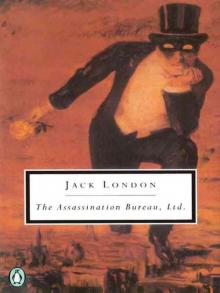 The Assassination Bureau, Ltd.
The Assassination Bureau, Ltd.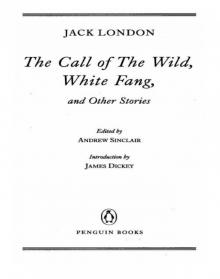 The Call of the Wild, White Fang, and Other Stories
The Call of the Wild, White Fang, and Other Stories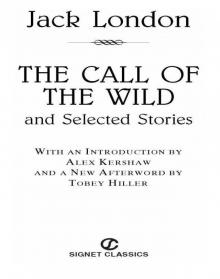 The Call of the Wild and Selected Stories
The Call of the Wild and Selected Stories Jerry of the Islands
Jerry of the Islands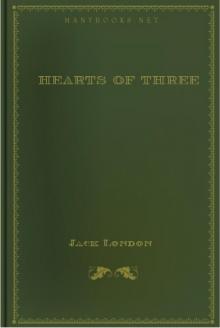 Hearts of Three
Hearts of Three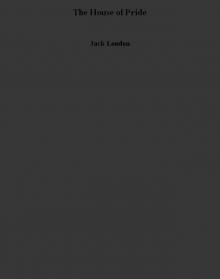 The House of Pride
The House of Pride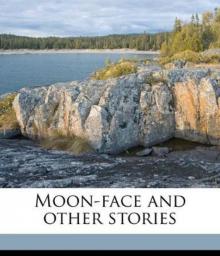 Moon-Face and Other Stories
Moon-Face and Other Stories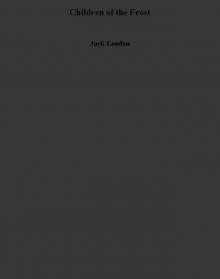 Children of the Frost
Children of the Frost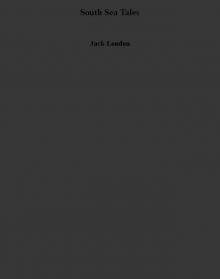 South Sea Tales
South Sea Tales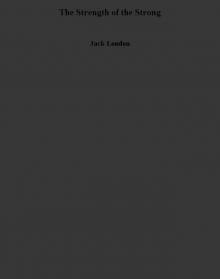 The Strength of the Strong
The Strength of the Strong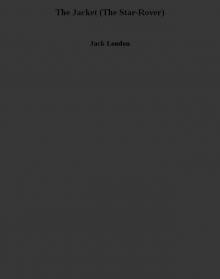 The Jacket (The Star-Rover)
The Jacket (The Star-Rover)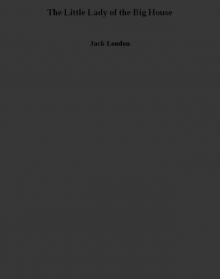 The Little Lady of the Big House
The Little Lady of the Big House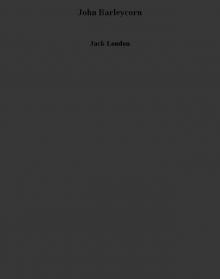 John Barleycorn
John Barleycorn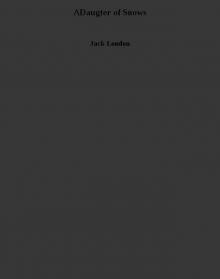 ADaugter of Snows
ADaugter of Snows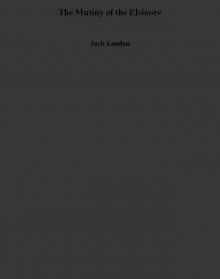 The Mutiny of the Elsinore
The Mutiny of the Elsinore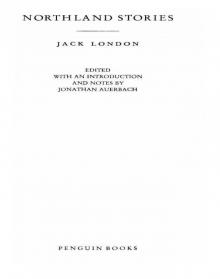 Northland Stories
Northland Stories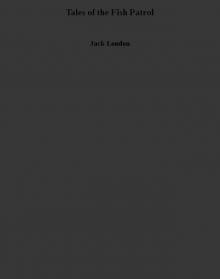 Tales of the Fish Patrol
Tales of the Fish Patrol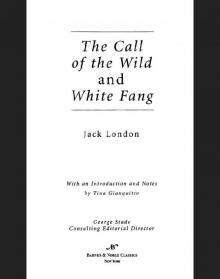 Call of the Wild and White Fang (Barnes & Noble Classics Series)
Call of the Wild and White Fang (Barnes & Noble Classics Series)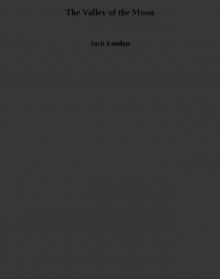 The Valley of the Moon
The Valley of the Moon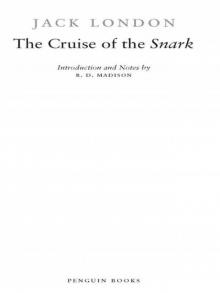 The Cruise of the Snark
The Cruise of the Snark The Game
The Game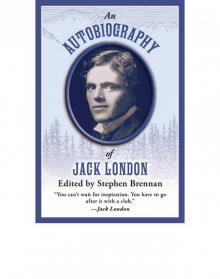 An Autobiography of Jack London
An Autobiography of Jack London